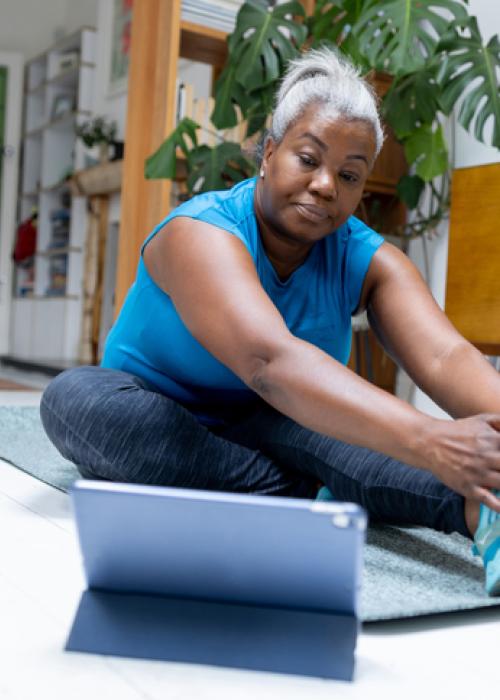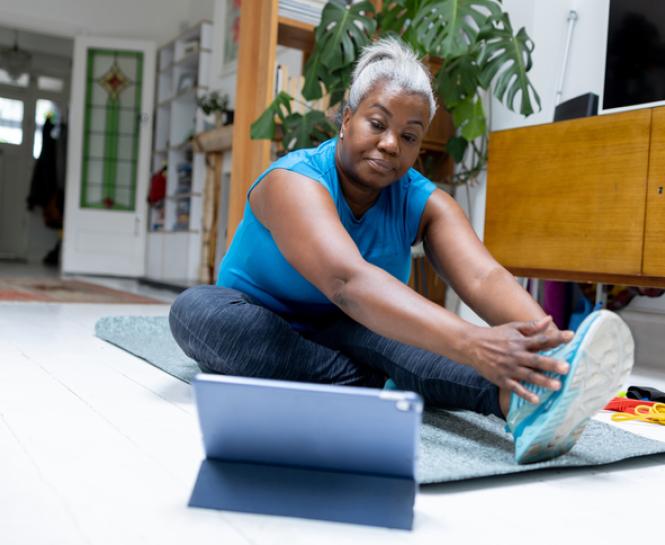Nearly 80% of women will develop fibroids by the age of 50. Some women have no symptoms and are unaware they have fibroids. Others have symptoms that interfere with their quality of life.
Here is what you need to know about fibroids and when to seek care.
What are uterine fibroids?
Fibroids are muscular tumors that grow in the wall of the uterus. They are also known by other names such as uterine fibroids, fibromas or myomas.
Uterine fibroids are typically benign, noncancerous growths that vary in size. Women may have more than one fibroid.
What are the types of uterine fibroids?
The most common types of uterine fibroids are:
- Subserosal fibroids that push outside of the uterus into the pelvis.
- Intramural fibroids that develop in the muscular wall of the uterus.
- Submucosal fibroids that grow into the open space inside the uterus.
Who is at risk for fibroids?
The cause of fibroids is unknown. But certain factors have shown an increased risk for developing fibroids, including:
- Age. Fibroids become more common as women age, most notably for women in their 30s and 40s up to menopause. Fibroids are less likely to develop after menopause and typically shrink if present due to a decrease in hormone production.
- Weight. Overweight or obese women are at a higher risk for developing fibroids.
- Family history. A woman is more likely to develop fibroids if a female relative—mother, sister or grandmother— has a history of fibroids.
- Hormones. Estrogen and progesterone hormones, which stimulate development of the uterine lining during a menstrual cycle, may promote the growth of fibroids. Fibroids contain more estrogen and progesterone than typical uterine muscle cells.
What are the symptoms of uterine fibroids?
Most women with fibroids do not have symptoms and often do now know they have fibroids until a gynecologic exam. For other women, symptoms can vary depending on the number of fibroids and the location and size.
It is important to schedule an appointment with your gynecologist if you have any of these symptoms:
- Heavy periods
- Periods that last more than a week
- Low back pain
- Pelvic pain and/or pressure
- Constipation
- Frequent urination
- Pain during intercourse
- Unexplained anemia
How are uterine fibroids diagnosed?
Fibroids are typically diagnosed by a gynecologist during a pelvic exam. Your gynecologist may prescribe imaging tests to confirm a diagnosis, including:
- Ultrasound. Sound waves create a picture of the uterus.
- Transvaginal ultrasound. Sound waves create a picture of the uterus, ovaries, tubes, cervix and pelvic area.
- Hysterosonogram. Saline is injected into the uterus for more detailed imaging.
- Pelvic MRI. Creates images of the uterus, ovaries and other pelvic organs.
What are the treatment options for uterine fibroids?
Treatment of fibroids can range from symptom management with over-the-counter (OTC) medicine to minimally invasive or more complex surgical procedures. Your gynecologist will consider factors such as:
- Severity of symptoms and impact on quality of life
- Number of fibroids and location and size
- Age
- Fertility goals
- Other health conditions
Can you get pregnant with fibroids?
Talk to your gynecologist if you have fibroids and are trying to become pregnant. While fibroids typically pose a low risk for pregnant women, your physician can address any concerns and provide more information about potential complications depending on your medical history.
Can fibroids be prevented?
While research has shown that preventing fibroids may not be possible, creating a healthy lifestyle can help to reduce the risk of fibroids. This includes:
- Maintaining a healthy weight/reducing excess body fat
- Eating a balanced diet
- Regularly exercising
- Managing stress
It is important to keep up with your annual gynecologic exam as well as schedule additional appointments if you are concerned about your health and showing symptoms that need to be evaluated.
Find Care at Catholic Health
Call 866-MY-LI-DOC (866-695-4362) to find a Catholic Health physician near you.






